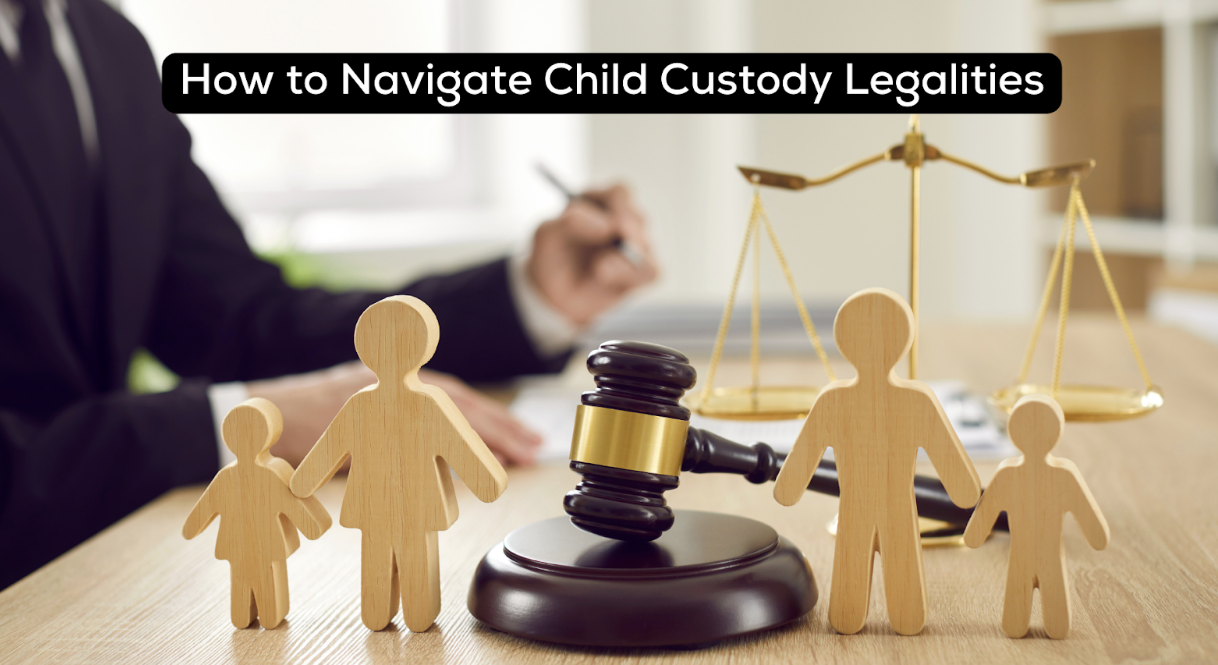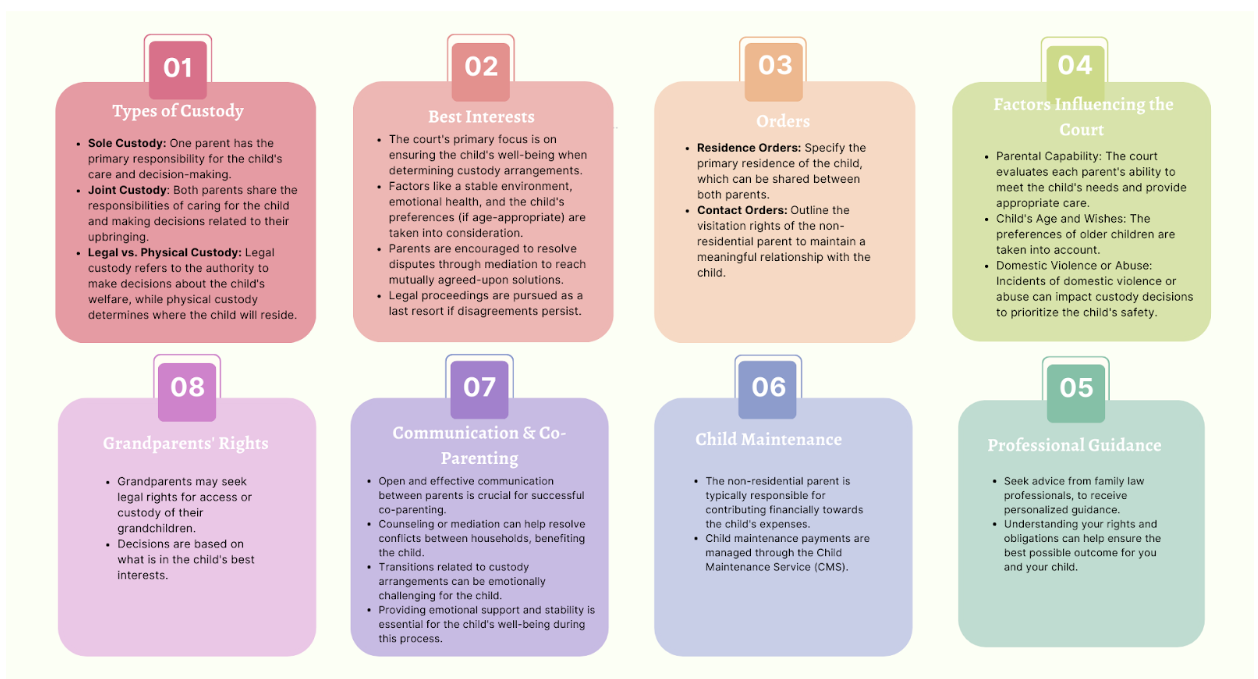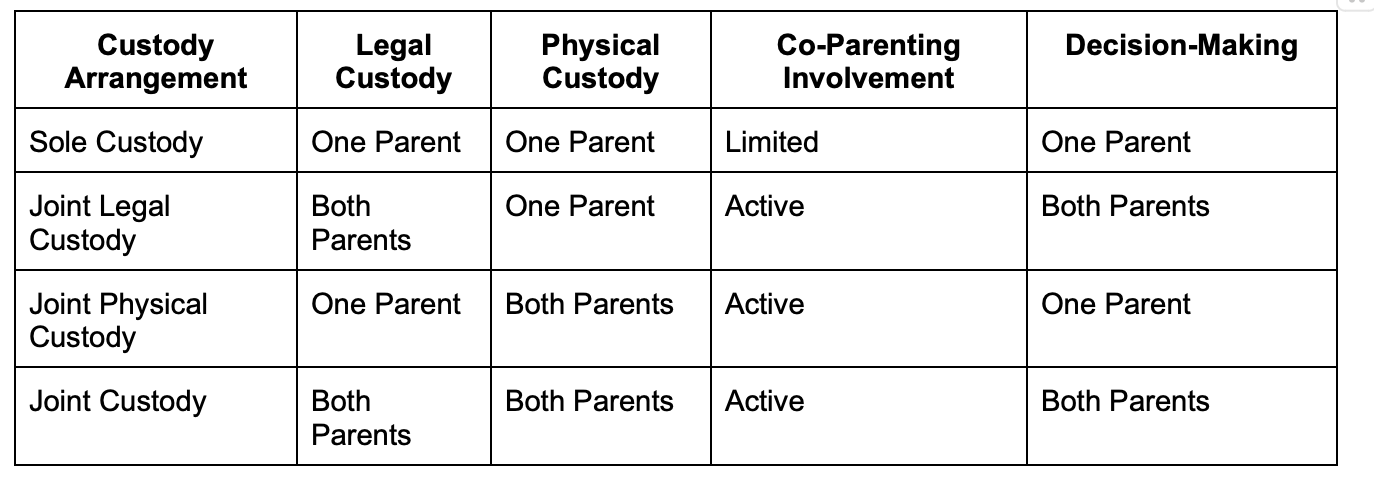How to Navigate Child Custody Legalities
Dealing with child custody issues can be an emotionally draining and legally complex process. As parents, ensuring the well-being of your child is the top priority, but navigating the complex web of custody laws and court proceedings can be daunting. This comprehensive guide aims to shed light on the critical aspects of child custody legalities, equipping you with the knowledge and strategies to navigate this intricate journey successfully.
Understanding Different Custody Arrangements
Before diving into the legal complexities, it's crucial to understand the fundamental concepts of child custody arrangements, as they greatly affect the parent-child relationship post-separation or divorce.
Legal Custody vs. Physical Custody
The distinction between legal custody and physical custody is crucial. Legal custody refers to the right to make crucial decisions about a child's upbringing, including matters related to education, healthcare, religion, and overall well-being. This type of custody grants a parent the authority to make choices that shape the child's development and future. Physical custody, however, dictates the child's primary residence and which parent they will live with predominantly.
Joint Custody
Joint custody arrangements are increasingly common and often viewed as the most favorable option for the child's best interests. In a joint custody setup, both parents share legal and physical custody of their child, meaning they have equal rights to make important decisions and have the child reside with them for a specified amount of time. This arrangement promotes active involvement from both parties and requires effective co-parenting strategies to ensure the child's needs are met and their transition between households is as smooth as possible.
Sole Custody
Under certain circumstances, one parent may receive sole legal and physical custody, giving them exclusive rights to make decisions about the child's upbringing and primary residence. This arrangement is often considered when it is deemed in the child's best interest, such as cases of abuse, neglect, or other significant concerns about one parent's ability to provide a stable and nurturing environment.
Visitation Rights
Even in situations where one parent is granted sole custody, the non-custodial parent typically retains visitation rights. These rights allow the non-custodial parent to maintain a relationship with their child and be involved in their life, albeit to a lesser extent than in a joint custody arrangement. Visitation rights are meticulously detailed and structured to safeguard the child's well-being, stability, and emotional security.
It's important to note that custody arrangements are not set in stone and can be modified as circumstances change or as the child's needs evolve. The court's primary focus is always on protecting the child's best interests, which may lead to adjustments in custody and visitation schedules over time.
Navigating the complexities of child custody can be emotionally and legally challenging, but understanding the different arrangements is the first step toward ensuring a healthy and supportive environment for the child's growth and development.
Legal Representation and Court Proceedings
As you navigate the legal terrain of child custody, securing proper representation and understanding court proceedings become paramount:
Consider retaining a lawyer:
In complex legal matters like child custody disputes, having an experienced attorney by your side can make a significant difference. While self-representation is possible, retaining a skilled child custody lawyer can significantly increase your chances of a favorable outcome. An attorney can guide you through the intricate legal system, advocate for your rights, and ensure that your case is presented effectively.
In areas like Reno, NV, where the divorce rate is higher than the national average, navigating child custody legalities is a common challenge faced by many families. For parents in this situation, seeking the guidance of a child custody lawyer in Reno NV can be invaluable. An experienced local attorney can provide legal counsel tailored to the state's laws and court systems, ensuring that the child's best interests are protected throughout the custody proceedings.
Understand the role of a Guardian ad Litem:
In some cases, a Guardian ad Litem (GAL) may be appointed to represent the child's best interests during custody proceedings. Cooperate fully with the GAL and provide any requested information. The GAL's role is to investigate the child's circumstances and provide an objective assessment to the court, advocating for the child's well-being throughout the process.
Key factors in custody decisions:
Courts consider various factors when determining custody arrangements, including the child's age, the parents' living situations, any history of abuse or neglect, and the child's preference (in some cases). The court will also assess each parent's capability to provide a stable, nurturing home environment, their commitment to nurturing a positive relationship with the other parent, and their capacity to fulfill the child's physical, emotional, and educational requirements.
Prepare your case:
Gather relevant evidence, such as documentation of your involvement in the child's life, witness testimonies, and craft legal arguments that highlight your ability to provide a stable, nurturing environment for your child. Keep meticulous records of your interactions with the child, their academic achievements, medical appointments, and any other relevant information showcasing your dedication to their welfare. Presenting a well-organized and compelling case can significantly strengthen your position in custody proceedings.
Preparing for the Custody Evaluation Process
When navigating child custody legalities, a crucial step involves the custody evaluation process. Here's what you need to know:
Understand the process: Custody evaluations typically involve interviews with both parents, home visits, and assessments of the child's living environment. Prepare yourself emotionally and logistically for this thorough examination.
Present yourself and your home environment: During the evaluation, demonstrate your capability to offer a nurturing, stable, and child-friendly environment. Organization, cleanliness, and age-appropriate amenities can positively impact the evaluator's assessment.
Keep detailed records: Maintain a comprehensive record of any relevant information, including communication with the other parent, childcare arrangements, and any notable incidents or concerns. This documentation can prove invaluable in the custody evaluation process.
Communicate effectively: Be honest, cooperative, and respectful when interacting with the evaluator. Avoid any confrontation or defensive behavior, as this may negatively impact the assessment.
Modifying Existing Custody Orders
Life is unpredictable, and circumstances may change, necessitating modifications to existing custody orders. Here's what you need to know:
Grounds for requesting a modification: Significant changes in circumstances, such as a parent's relocation, changes in employment or income, or concerns about the child's well-being, can justify a request for custody modification.
The modification process: Initiating the process requires filing a formal request with the court, accompanied by supporting evidence and an explanation for the requested modification. Hearings may be scheduled to evaluate the request.
Impact of changes: Significant changes in a child's life, like a parent's remarriage or a significant relocation, can impact the court's decisions regarding custody arrangements.
Cross-Jurisdictional Custody Issues
In today's increasingly mobile society, custody disputes can transcend state or even national boundaries, adding an extra layer of complexity:
Navigating custody across state lines: The Uniform Child Custody Jurisdiction and Enforcement Act (UCCJEA) provides guidelines for determining which state has jurisdiction over custody matters when multiple states are involved.
International custody disputes: The Hague Convention on the Civil Aspects of International Child Abduction provides a legal framework for resolving international custody disputes and preventing parental child abduction.
Legal assistance: Seeking the guidance of an attorney experienced in cross-jurisdictional custody matters is crucial to navigating the intricate legal requirements and ensuring compliance with relevant laws and treaties.
Coping Strategies and Support Systems
Navigating child custody legalities is not only a legal battle but also an emotional one. It's essential to prioritize your well-being and that of your child throughout this challenging process:
Emotional impact: Custody disputes can take a significant toll on both parents and children. Acknowledge and address any feelings of stress, anxiety, or grief that may arise.
Building a support network: Surround yourself with a network of family, friends, and professionals (e.g., counselors, and therapists) who can provide emotional support and practical assistance during this trying time.
Self-care and mental health: Prioritize self-care practices such as exercise, mindfulness, and relaxation techniques to maintain your mental and physical health. Seeking professional counseling can also be beneficial.
Comparison of Custody Arrangements
To help you better understand the different custody arrangements, here's a comparison table:
Frequently Asked Questions
1. What steps can I take if I believe my child is in danger with the other parent?
If you have credible concerns about your child's safety or well-being while in the care of the other parent, take immediate action. Contact the appropriate authorities (e.g., law enforcement, child protective services) and document any evidence of abuse or neglect. You may also seek emergency custody orders from the court to protect your child's immediate safety.
2. How do courts determine what is in the 'best interest of the child'?
Courts consider a variety of factors when determining the child's best interest, including:
The child's physical, emotional, and developmental needs
The ability of each parent to provide a stable, nurturing environment
Any history of abuse, neglect, or substance abuse
The child's preference (in some cases, depending on age and maturity)
The quality of the parent-child relationship
The ability of each parent to foster a positive relationship with the other parent
3. Can a child choose which parent to live with?
In some cases, courts may consider a child's preference regarding custody arrangements, but this is typically reserved for older children (often around 12-14 years old) who demonstrate sufficient maturity and reasoning abilities. However, the child's preference is just one factor among many that courts consider when determining custody.
Conclusion
Navigating child custody legalities is a complex and emotional journey, but having the right knowledge and support can empower you to make informed decisions that prioritize your child's well-being. Remember, the legal system is designed to protect the best interests of the child, and by understanding the intricacies of custody arrangements, legal representation, court proceedings, and coping strategies, you can navigate this process with confidence and clarity.








